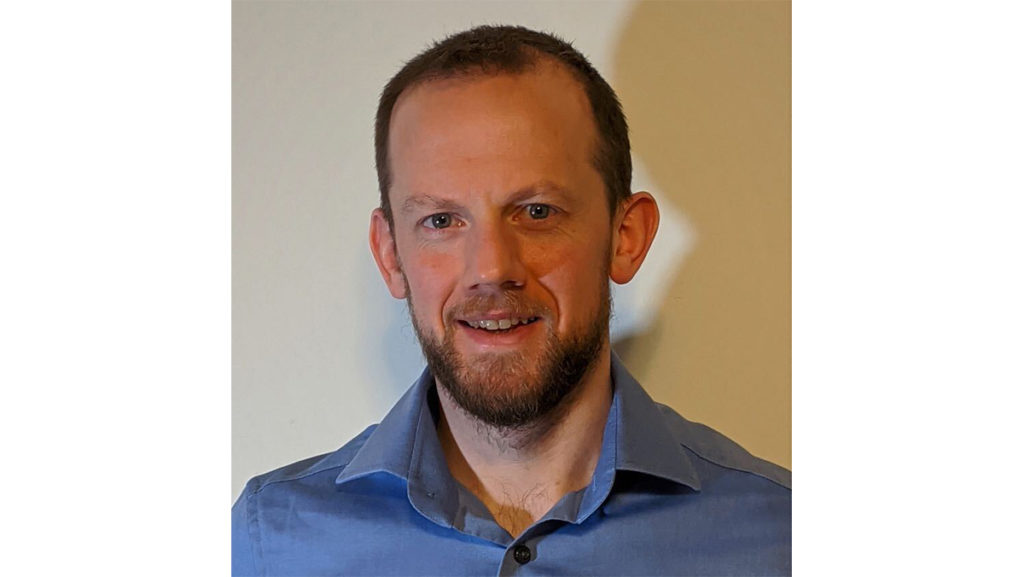Dave Diggin, assistant professor in the Ithaca College Department of Exercise Science and Athletic Training, and Gary Sforzo, emeritus professor in the School of Health Sciences and Human Performance, published the article “Enhancing Wellness During Young Adulthood” in a special issue of the American College of Sports Medicine’s Health and Fitness Journal titled “Refocusing Lifespan to Healthspan.” The issue includes articles that discuss factors that affect health and wellness over the course of one’s life.
The article looks at the barriers to wellness during young adulthood, or the ages of 18 through 45, as well as some of the strategies that health and fitness professionals can use to help clients overcome those barriers. The paper was published last month.
Opinion editor John Turner spoke with Diggin about how young adults can utilize the information from the article in their own lives.
This interview has been edited for length and clarity
John Turner: Why was this topic important for you and Sforzo to research?
Dave Diggin: One of the key things that really motivated us to write the paper is if we think about society overall, it is really focused on cure rather than prevention. Physical activity influences all aspects of wellness, and it’s so important to think about physical activity and physical health overall and how that impacts wellness throughout the life span. It really can offset or reduce the risk of people contracting some of these really dramatic lifestyle-related health conditions. It was very important for us to write this article to provide health and fitness professionals with a resource that they could use to help clients maybe restructure their lifestyle and get a sense of what those barriers to a healthy lifestyle are for folks at different ages. So it’s kind of a roadmap, or a resource, for those folks.
JT: What do you think some of the barriers are for young adults to living a healthy lifestyle?
DD: One of the key things that we’ve mentioned is that there are time pressures. These include time pressures for college students, being influenced by their peers, their pressure to socialize. The research shows, as well, academic pressures from family members for them to succeed. … When we’re talking about early- to mid-professional years, their careers can become more of a time pressure. Being successful in your career, being successful professionally becomes a major time pressure. In addition, some of the technological advancements that we see in society add to this as well. While those advancements have a benefit in that they allow us to maybe work more efficiently in our jobs, they also typically decrease levels of physical activity. We could also think about the amount of time we might sit or spend time sitting at a computer or the time we spend sedentary throughout the day. These are all things that fitness professionals need to take into account when designing training programs for clients, trying to get them to adhere to those training programs. We really need to take those pressures seriously.
JT: If there was one thing that you want people to take away from the journal, what would it be?
DD: Some of the key takeaways are that it’s important to understand the importance of physical health and the impact physical health has on the other dimensions of wellness. Physical health has an impact on emotional health, spiritual health and occupational health, and all of those kinds of things. Also, the lifestyle decisions that we make during young adulthood can greatly influence the quality of life in the later stages of our lives. … So if we can make healthy decisions during young adulthood, it’s more likely that we’ll develop really healthy habits, and that will carry those healthy habits into later stages of our lives.
JT: If someone reads the article and says, “I really want to change my life going forward,” what would you recommend them to do?
DD: Firstly, trying to connect with a health and fitness professional that’s qualified to be able to guide them towards achieving some of their lifestyle goals. Those professionals can then identify the person’s limitations and develop physical activity programs that will improve their overall physical health, and those things should certainly have a positive impact on the other dimensions of wellness. Other suggestions would be looking at the person’s use of technology each day and how they can reduce some of that outside of the working environment.














